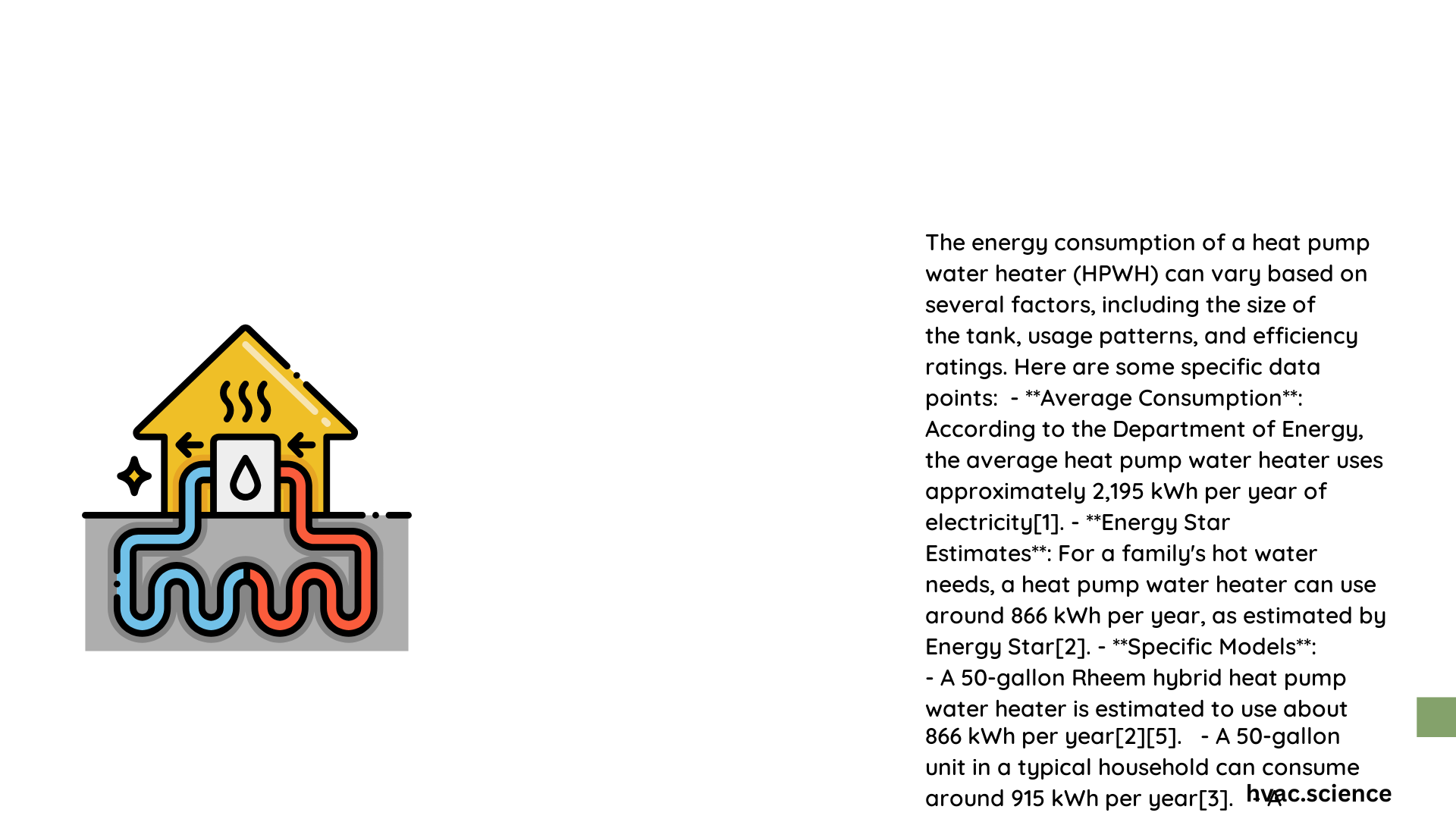Heat pump water heaters represent a revolutionary approach to domestic water heating, offering unprecedented energy efficiency and significant cost savings. Homeowners can expect an average annual electricity consumption between 900-2,200 kWh, dramatically lower than traditional electric water heaters. These innovative systems leverage advanced thermal transfer technologies to minimize energy expenditure while providing consistent hot water for residential needs.
What Are the Average Annual Energy Consumption Rates?
How Much Electricity Does a Heat Pump Water Heater Use?
The annual electricity consumption for heat pump water heaters varies based on several critical factors:
| Household Size | Average Annual kWh | Estimated Annual Cost |
|---|---|---|
| 1-2 People | 750-900 kWh | $90-$150 |
| 3-4 People | 900-2,195 kWh | $150-$300 |
| 4+ People | 2,195-2,500 kWh | $300-$400 |
Key Energy Consumption Insights
- Typical 50-gallon heat pump water heater: Approximately 912.5 kWh per year
- Department of Energy average: 2,195 kWh annually
- Efficiency rating: 2-3 times more efficient than conventional water heaters
What Factors Influence Heat Pump Water Heater Energy Consumption?
Several critical elements impact the annual kWh usage:
- Household Water Demand
- Family size
- Daily hot water consumption
-
Peak usage periods
-
Installation Environment
- Ambient temperature
- Geographical location
- Insulation quality
-
Surrounding air temperature
-
System Configuration
- Tank size
- Voltage (120V vs. 240V)
- Manufacturer specifications
How Do Heat Pump Water Heaters Compare to Traditional Systems?
Comparative analysis reveals substantial energy efficiency advantages:
- Conventional Electric Water Heater: 3,650 kWh/year
- Heat Pump Water Heater: 912.5-2,195 kWh/year
- Energy Savings: Up to 60-70% reduction in electricity consumption
What Are the Financial Implications?
Financial benefits extend beyond energy savings:
- Average Annual Operating Cost: Less than $200
- Potential Rebates: $300-$800
- Typical Payback Period: 17-24 months
How Can Homeowners Optimize Heat Pump Water Heater Efficiency?
Practical strategies to minimize kWh consumption:
- Maintain consistent ambient temperatures
- Ensure proper installation and ventilation
- Regular maintenance
- Consider supplemental insulation
- Monitor and adjust temperature settings
What Climate Considerations Impact Performance?
Climate plays a significant role in heat pump water heater efficiency:
- Warm Climates: Maximum efficiency
- Moderate Climates: Good performance
- Cold Climates: Potential reduced efficiency, may require supplemental heating
Conclusion

Heat pump water heaters offer an exceptional solution for energy-conscious homeowners, delivering substantial kWh reduction and long-term cost savings. By understanding annual energy consumption patterns, individuals can make informed decisions about their water heating infrastructure.
